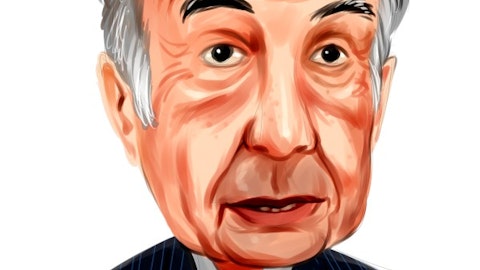When To Sell Quotes
Warren Buffett’s advice on when to sell is fairly straightforward. Sell when the business you are invested is performing poorly (and will likely continue to do so).
“Should you find yourself in a chronically leaking boat, energy devoted to changing vessels is likely to be more productive than energy devoted to patching leaks.”
As an individual investor, you can’t fix a declining business. Your energy is best spent cutting losses and moving on.
“The most important thing to do if you find yourself in a hole is to stop digging.”
Buffett sells infrequently. He is a long-term investor that would rather hold forever than sell as long as a business maintains its competitive advantage. Even Buffett gets it wrong sometimes. When you make a mistake, learn from it and cut your losses.
Selling businesses in decline is a form of risk management. The next section discusses Buffett’s views on risk and leverage.
Buffett on Risk & Leverage
Modern portfolio theory argues that stock price volatility is a proxy for risk. Wide diversification is preferred over concentrated investing.
Buffett has invested in a far more concentrated manner. Here’s where Buffett says risk comes from:
“Risk comes from not knowing what you’re doing.”
Buffett places an emphasis on knowing what he is doing by staying in his circle of competence.
“Rule No. 1: never lose money; rule No. 2: don’t forget rule No. 1”
In fact, he prefers minimal risk to higher risk and potentially higher profits.
“When forced to choose, I will not trade even a night’s sleep for the chance of extra profits.”
Rather than invest broadly in businesses he is less confident in, Buffett runs a focused portfolio invested in his highest conviction ideas, as the two quotes below show:
“Keep all your eggs in one basket, but watch that basket closely.”
&
“Diversification is a protection against ignorance. It makes very little sense for those who know what they’re doing.”
Buffett does not use diversification to mitigate risk. Instead, he reduces risk by examining businesses closely and understanding their competitive advantage.
“We believe that a policy of portfolio concentration may well decrease risk if it raises, as it should, both the intensity with which an investor thinks about a business and the comfort-level he must feel with its economic characteristics before buying into it. In stating this opinion, we define risk, using dictionary terms, as “the possibility of loss or injury.”
A rising tide lifts all boats. In bull markets, investors who take on more risk by using leverage will look like geniuses. When sentiment changes and a recession occurs, these leveraged portfolios will not look so smart.
“It’s only when the tide goes out that you learn who has been swimming naked.”
Warren Buffett does use some leverage in his investing (contrary to quotes in this article), but he only uses non-callable, ultra-low interest leverage. He also does not leverage himself excessively. More of Buffett’s thoughts on leverage are in the two quotes below:
“When you combine ignorance and leverage, you get some pretty interesting results.”
&
“I’ve seen more people fail because of liquor and leverage – leverage being borrowed money. You really don’t need leverage in this world much. If you’re smart, you’re going to make a lot of money without borrowing.”
Avoiding excess leverage and being cautious with your investments takes will power and maturity. The next section covers Warren Buffett’s tips for life and personal finance.




